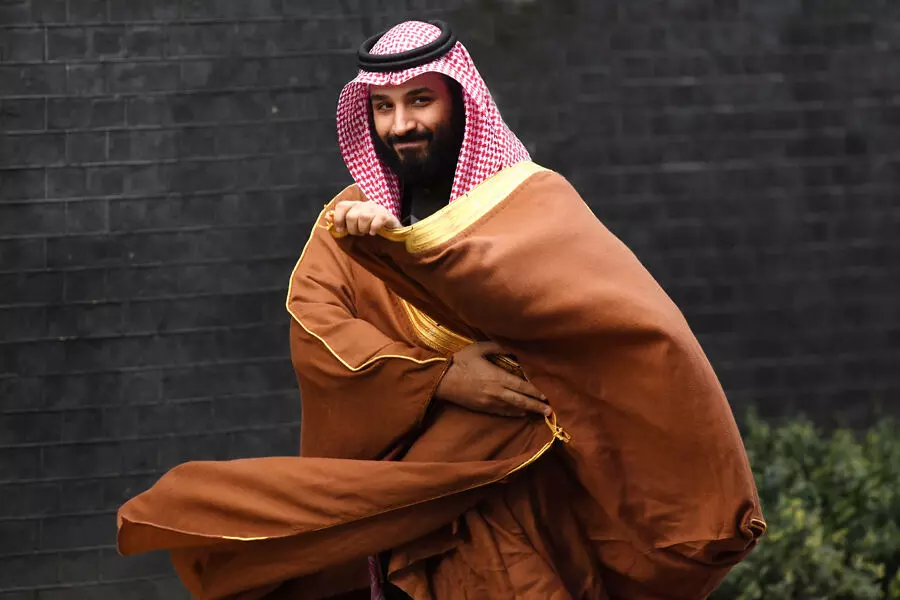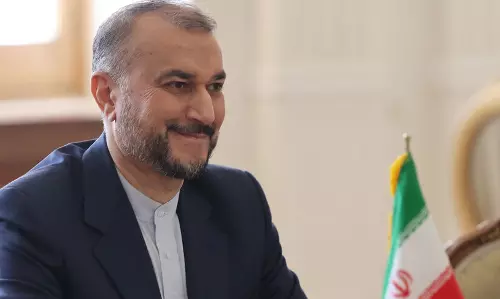

Saudi Arabia: changing to face the future
text_fieldsSince Mohammad Bin Salman (MBS) became the de facto ruler of Saudi Arabia, the Kingdom has been undergoing major changes. MBS is said to be popular with 70% of the populace that is under the age of 30.
Most striking are the reforms in the status and rights of women. Women are permitted to drive. Saudi is the last country on the planet to do this. Saudi Arabia has also allowed cinemas for the first time since the early 1980s. The cinema industry is keen to exploit this market. Pop concerts are now allowed but only for Saudi men wearing the folk dress. The Kingdom of Saudi Arabia (KSA) has also opened itself to tourism. Previously foreigners were only permitted to enter the country for a pilgrimage, study, business trips or to work. The first tourist visas were issued in 2018. But take-up was modest.
Christians, like other non-Muslims, have even been allowed to visit Medina but not the Masjid Annabawi with the tomb of the Prophet Mohammed (Peace and Blessings Upon Him) within it. But visitors, even in the neighbourhood of the holy site, have to maintain a certain decorum and follow a dress code to respect the sanctity of the area.
Before the market could really taste the foreign appetite for visiting KSA, coronavirus reared its hideous head. World tourism has been all but in abeyance for near on 24 months.
More and more entertainment opportunities are available. There have been giant truck fests, wrestling matches and comedy nights. This would have been regarded as a case of impropriety not long ago.
The Mutawwa's role now is limited to exhorting Muslims to be observant and devout. However, the junior generation has less and less respect for what they perceive to be an exegesis of the Quran and Hadith (Prophet's tradition) that is retrograde and unreasonable.
Allowing women to the motor has been transformative. Saudi Arabia, taken as a whole, has virtually no public transport. Buses are used by companies to provide transport to their employees. Therefore, if a woman wished to work, she had to hire a driver. This made most jobs uneconomic for females.
The population explosion is a major problem for the country. Ensuring enough jobs for the youth is a real challenge. For 60 years, Saudis have only had to do white-collar jobs. But the country cannot afford to employ all Saudi men in such positions. Menial jobs have traditionally been performed by guest workers from other countries.
It looks like the world is shifting to green energy. Therefore, on the economic front, Saudi faces the same scenario in the long term that most oil producers, or rather oil-dependent economies, do. It is a prospect faced by the Saudis that there will be little or no market for Saudi Arabia's exports within 50 years. As of now, 99% of the country's export earnings are from hydrocarbons.
In 2015, Saudi Arabia was surprisingly candid about its economic forecasts. It was staring bankruptcy in the face. A cataclysm was averted. In 2016, MBS unveiled his characteristically audacious Vision 2030. This is a plan to transition his realm away from being overly reliant on oil and gas exports. The themes of Vision 2030 are e-government, privatisation, a diversified and sustainable economy, and education as the key to all this.
Saudi is also creating Neom (New Enterprise Operating Model), a planned city in the Tabuk Province of northwestern Saudi Arabia). This is a USD 500 billion zones on the Red Sea coast, and it may stretch into Jordan and even Egypt. Neom is supposed to be about renewable energy, biotech and especially genetically modified agriculture.
As an additional tourist attraction in the Kingdom, there is a plan to create a lagoon on the Red Sea and offer it as a high-end tourism destination akin to Dubai or the Maldives. True, Western tourists would like to wear raiment- seen as unIslamic - that would not be allowed in those settings, apart from the ban on liquor.
The Saudi kingdom has also seen major transport expansion to boost the infrastructure. A railway line linking Mecca and Medina became functional in 2018. There is a nuclear power station now in the country with plans to construct a further 17 – another out of the box concept for a country sitting on the world's biggest oil reserves.
Given Saudi's large landmass, long coastlines and scorching sunlight, its potential for renewable energy is enormous. KSA intends to capture this green energy as it transitions away from hydrocarbons. In the meantime, this will save as much oil and gas as possible for export.
Saudi has seen a template about how to become a post-oil economy. Look at the UAE. Financial services, tourism, international universities, airlines, health tourism and high-end shopping are the way to go. Saudi has also a green card system to allow affluent foreigners to reside in the country. Tax incentives make this an alluring option.
Hosting major sporting events in Qatar and the UAE has put these countries on the map. The Saudis look keen to tap this too and are interested in the possibility of playing host to international sporting tournaments in the future.
It is all exciting and bold. But whether every item of this will come to fruition, only time will tell. But there is no dearth of will as of now.
Tailpiece: The most recent add-on to women, just a few days ago: Saudi women have been allowed to apply for 'general taxi licence' to work as taxi drivers too – another women-empowering step that can double as a means of income too, and Saudi women would feel more comfortable to travel alone by taxi with a female driver.
The author is a political analyst in the UK























